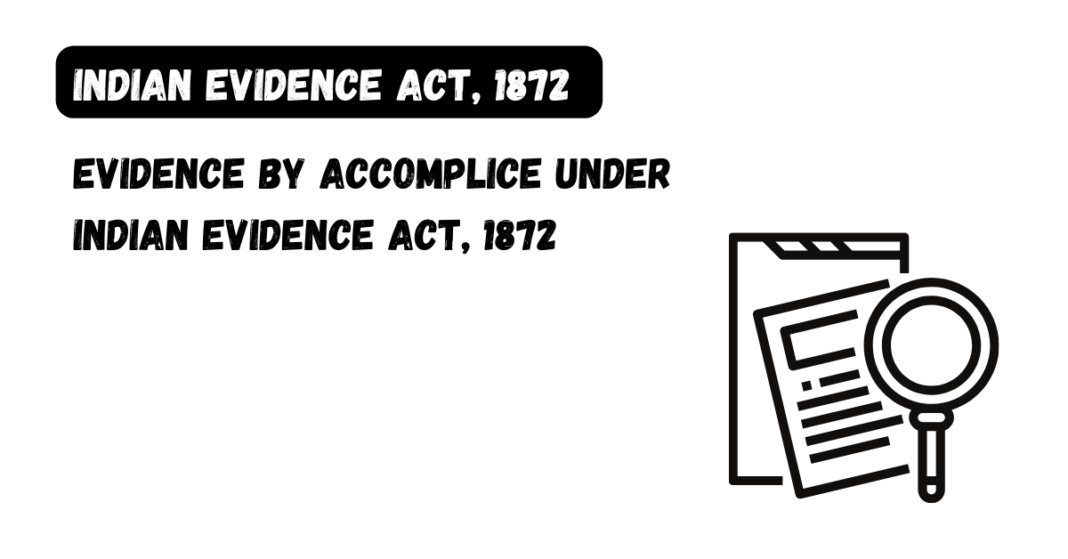Under the Indian Evidence Act, 1872, evidence given by an accomplice is treated with caution and requires corroboration. An accomplice is someone who has participated in the commission of an offence along with the accused.
Section 133 Accomplice as a Competent Witness
Section 133 of the Indian Evidence Act states that an accomplice is a competent witness and can be examined, but their credibility as a witness is subject to certain conditions.
Corroboration Requirement
As per Section 114 of the Indian Evidence Act, the court may look for corroboration of the accomplice’s evidence in material particulars implicating the accused. Corroboration refers to the independent evidence that connects or supports the accomplice’s testimony. It is essential to establish the trustworthiness of the accomplice’s statement.
Nature of Corroboration
The corroboration can be in the form of:
- Evidence connecting the accused with the offence.
- Evidence supporting the truthfulness of the accomplice’s statement in material particulars.
Insufficient Corroboration
If the court finds that the accomplice’s evidence is not adequately corroborated, it may result in the accused being acquitted. However, the court may still consider the uncorroborated evidence of the accomplice for evaluating the overall circumstances of the case.
Independent Evidence
The corroborative evidence should be independent, meaning it should not be derived from the accomplice’s statement itself. It should come from a source separate from the accomplice’s testimony, providing support to the truthfulness of their statement.
Evaluation of Accomplice Evidence
The court evaluates the accomplice’s evidence with caution due to the possibility of their inherent bias or motive to shift blame. The court scrutinizes their testimony carefully, considering factors such as their credibility, consistency, reliability, and the presence or absence of motive to falsely implicate the accused.
Conviction Based on Accomplice Evidence
The court can convict an accused based solely on the testimony of an accomplice if it is found to be reliable, credible, and sufficiently corroborated in material particulars. However, the court must be satisfied that the evidence is trustworthy and inspires confidence.





